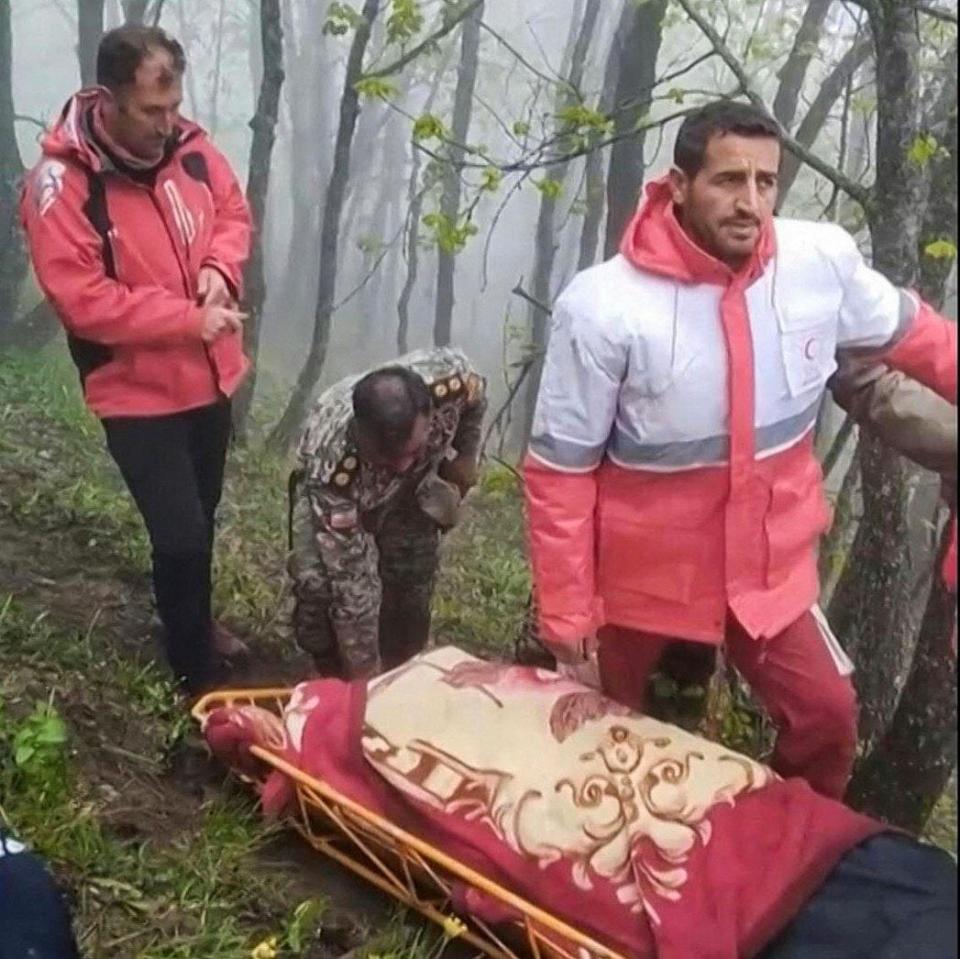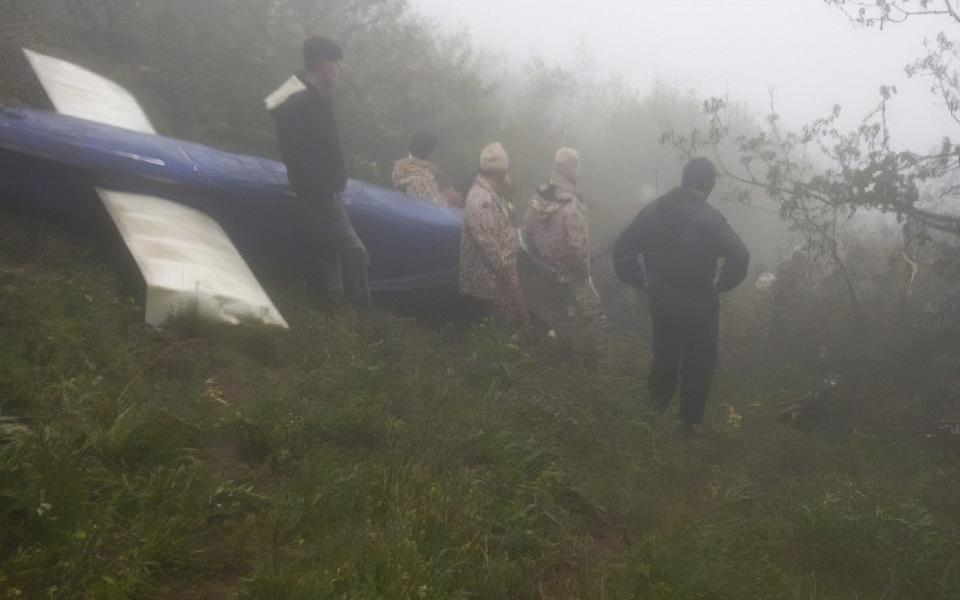Iranian president and foreign minister killed in helicopter crash
- Oops!Something went wrong.Please try again later.
- Oops!Something went wrong.Please try again later.
Ebrahim Raisi, Iran’s president, died in a helicopter crash caused by a “technical failure”, state media reported on Monday.
Rescuers reached the wreckage of the helicopter early on Monday morning after a desperate search mission hampered by rain, fog and snow.
The death of Ebrahim Raisi, a hard-liner seen as a potential successor to Ayatollah Ali Khamenei, the supreme leader, was confirmed shortly afterwards, when Iranian state media said he and the other passengers had “attained martyrdom”.
The United States and Israel denied having anything to do with the downing of the aircraft, as conspiracy theories circulated online about an assassination.
IRNA, Iran’s state news agency, later reported that a technical failure downed the decades-old US-made Bell 212 helicopter, without elaborating.
Khamenei, who holds ultimate power with a final say on foreign policy and Iran’s nuclear programme, described Raisi’s death as an “unfortunate incident” but did not attribute any blame.
“It was with great sadness and regret that I received the bitter news of the martyrdom of the Mujahid scholar, the popular and hard-working president and his dear companions, may God bless him and grant him peace,” he said.
Raisi’s death comes at an already tumultuous time for the Middle East, with regional tensions having soared after seven months of war between Israel and Hamas, a Palestinian terrorist group backed by Iran.
Last month, Iran launched an unprecedented, direct attack against Israel using missiles and drones – a move that briefly turned a decades-long shadow war between the two rivals into a direct confrontation.
Iran’s theocratic rulers are also facing growing dissent at home over a series of political, social and economic crises.
Mohammad Mokhber, the Iranian first vice president, will take over as interim president, the official IRNA news agency reported.
“I announce five days of public mourning and offer my condolences to the dear people of Iran,” Khamenei said in a statement. Mokhber, like Raisi, is seen as close to the supreme leader.

Ali Bagheri Kani, who led Iranian delegations during negotiations with the US over Iran’s nuclear programme, has been appointed acting foreign minister, IRNA reported.
His predecessor, Hossein Amirabdollahian, was known for his strong ties to the Islamic Revolutionary Guard Corps (IRGC), the ideological arm of Iran’s military.
The foreign minister had been particularly close to Qasem Soleimani, the revered IRGC general who was killed in a 2020 US drone strike in Baghdad.
Raisi’s US-made Bell 212 helicopter went down in Varzeqan region north of Tabriz as Raisi returned from an official visit to the border with Azerbaijan in north-west Iran.
The 50-year-old helicopter was acquired by the Iranian military in the 1970s, during the last years of Shah Mohammad Reza Pahlavi’s reign.
Most of Iran’s helicopter fleet dates back to before the 1979 Islamic Revolution and international sanctions have made it difficult to acquire spare parts for them.

Mohammad Javad Zarif, a former Iranian foreign minister, sought to blame the US for the crash.
“One of the main culprits of yesterday’s tragedy is the United States, which ... embargoed the sale of aircraft and aviation parts to Iran and does not allow the people of Iran to enjoy good aviation facilities,” Mr Zarif said. “These will be recorded in the list of US crimes against the Iranian people.”
The 63-year-old hard-liner was elected president in 2021, and since taking office has ordered a tightening of morality laws, overseen a bloody crackdown on anti-government protests and begun enriching uranium to levels approaching those needed to create a bomb.
Iran’s allies sent messages of condolences after Raisi’s death was confirmed.
Vladimir Putin, who has forged closer ties with Tehran and has relied on its support for his war in Ukraine, said Raisi was “a true friend of Russia” and described his death as an “irreparable loss”.
Members of the so-called “Axis of Resistance” of Iran-backed terror groups arrayed against Israel and its allies expressed their condolences.
Hamas mourned Raisi as an “honourable supporter”, saying it appreciated his support since the start of the war in Gaza.
Lebanon’s Hezbollah, which has traded deadly cross-border fire with Israel amid the war, praised Raisi as “a strong supporter, and a staunch defender of our causes ... and a protector of the resistance movements”.
“Hezbollah in Lebanon extends its deepest condolences,” the group said in a statement, adding that it had known Raisi “closely for a long time”.


